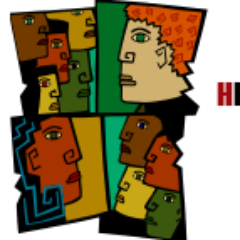“I attended my first summer workshop in 2003 while a doctoral student. It was a life-changing experience. I was surrounded by the crème de la crème of scholars dedicated to studying, preventing and eliminating health disparities. Several of these esteemed individuals were women and people of color, which is not a minor point to take for granted. Indeed, at the time I was the sole Black doctoral student in my program and subsequently became the first Black woman to earn a PhD from that program. Thus it was profoundly moving and motivating to be surrounded by like-minded people representing both veteran scholars, experienced practitioners, and us student rookies. There was a vibrant energy emanating from the speakers and panelists, as well as from the audience members. I no longer felt alone.
In 2005 while a junior faculty member, I direly wanted to attend but did not wish to fly as I was pregnant. My spouse drove me 1,058 miles through 6 states so that I could participate. Once again, I left the workshop with renewed vigor to tackle our nation’s issues with health inequities. This second experiences cemented my commitment to a career focused on eliminating health disparities.
Since my arrival to Texas in 2006, I have made it a priority to be as involved as possible with this workshop. One of the highlights of my career was being asked to present at the workshop! What a culminating experience. I actually thought things could not get better. But I was wrong. This year, not only am I co-chair and thus able to work hand-in-hand with THE Dr. Lovell Jones, I have a former student mentee presenting!”
“The year after my diagnosis, I completed my Master of Social Work degree and enrolled in Texas A&M’s health education doctoral program. Two very important events happened during that time period. In 2006, I met Dr. E Lisako Jones-McKyer who enthusiastically agreed to join my dissertation committee. In 2007, I was re- introduced to Dr. Lovell Jones, also a Baton Rouge native, when he visited College Station and provided a talk on health disparities. Later that year, I attended my first summer workshop.
The next five days of the workshop were as awe-inspiring as they were overwhelming. Every day, regardless of discipline or rank, the presenters spoke with one unified message concerning the need for health equity. They issued an undeniable call to action and dared each of us to strike a blow against health disparities in whatever form they take. As the workshop came to a close, I finally began to see the unfolding of my life’s purpose— a career dedicated to the elimination of cancer disparities and the teaching and mentoring of the next generation of health equity researchers and practitioners.
Today, almost 10 years after my first workshop, I have come full circle. I am a faculty member at the University of Houston— Downtown. It is my pleasure and privilege to mentor the next generation of social workers who are going out into Houston and points beyond to alter the very socioeconomic fabric of their communities. For my efforts in bladder and prostate cancer survivorship, I was conferred the 2016 UHD Excellence in Scholarly/ Creative Activities Award. The icing on the proverbial cake is that I am co-chairing this year’s workshop with the two people who helped launch my health disparities career.
So, what possible advice could I give to first-time attendees? First, take it all in. This 6-day workshop is a veritable feast of information, as well as potential mentors and collaborators. It’s ok to feel overwhelmed by the sheer magnitude of the issues and “awesomeness” of the presenters. Second, save business cards, make notes of what you discussed, and send thank-you notes. And last, but not least, begin to decide how you will incorporate health equity into your research and practice. This is the first step in your journey.”
I am honored and excited to have received this email. My time at the Center for Research on Minority Health in the summer of 2011 changed my entire life and I am forever grateful. I graduated from Prairie View A&M University in May, and am currently pursuing a Masters in Public Health at Columbia University. Without my participation in the PIPELINE program with the amazing Kellogg Scholars and under the guidance of you I may never have been exposed to the field of public health, I am forever indebted. My time at the CRMH solidified my interest in fighting health disparities, and I hope to dedicate my career to doing so. Although I don’t see the PIPELINE program, I am hoping that my response will still be valuable. Looking forward to keeping in touch!
Dr. Jones,
I am very saddened to hear that the CRMH is no longer in existence. I consider my summer spent there to be a very defining period in my life that shaped my goals for myself.
I apologize for the late response, Dr. Jones. I had been swamped with law school finals and then starting back at my internship for the break. I have completed the survey you sent out. I hope you’ve been well and look forward to seeing you soon!!
Hi Dr. Jones,
I hope all is well with you. I apologize for the delay, I just submitted the form.
I truly enjoyed my summer with Dr. King and Ms. Lewis and the outreach work we did in Galena Park.
It was the reason I focused on minority-centered outreach opportunities as a student while at UT.
I hope to continue the momentum within both my corporate and personal networks as I move forward as a young professional.
I look forward to keeping in touch!
